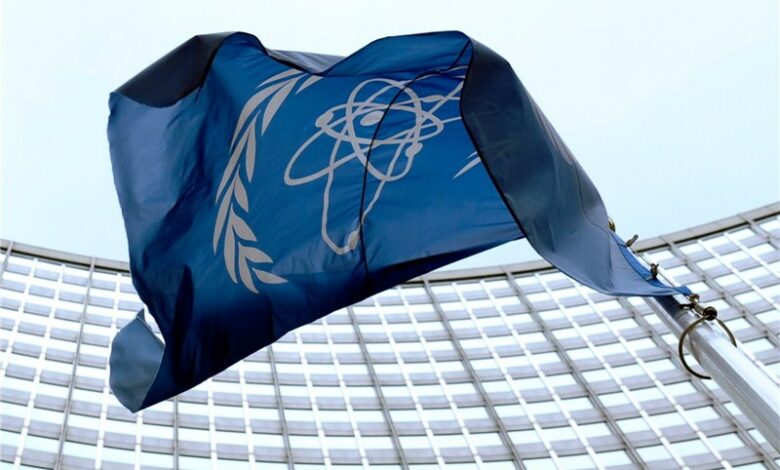The factors that transform the atomic agency from a technical institution to a political one

According to the international group Tasnim news agency, the International Atomic Energy Agency is an international organization with the mission of promoting It has defined the peaceful use of nuclear energy and preventing the development of nuclear weapons by different countries.
The agency was established in 1957 as an ostensibly independent organization within the United Nations system, although it claims not to be part of the United Nations or any other organization. The official website of this agency, in the “About Us” section, calls itself an independent international organization whose relationship with the United Nations is regulated by a special agreement. Despite this, the agency has stated in its charter that its reports It regularly presents to the General Assembly and the United Nations Security Council. The headquarters of this organization is in the city of Vienna, Austria, and so far 175 countries have become members of this organization. However, from the very beginning of the establishment of the International Atomic Energy Agency, this organization has been part of the fabric of international politics and influenced Washington has been quite clear and obvious in that matter. The first head of the agency was none other than an American. “William Sterling Cole”, a Republican member of the House of Representatives from the state of New York, was the head of the agency from the beginning of its establishment until 1961.
Several reasons in the past years have made the agency not as a technical organization but as a part It can be seen from political institutions with structural dependence on the United States of America.
Atomic Agency budget
The IAEA budget is highly dependent on the contributions of member countries, especially the United States. The United States is currently the main funder of the agency. In 2020, the Congressional Research Center announced that Washington donates $200 million annually to this international organization. This figure is more than 25% of the total budget of the agency.
“Mary Douglas” British anthropologist says “no gift is free”. A gift creates a commitment for the recipient and is the basis for creating a bilateral system and economic and social hierarchy. In the 1990s, Derrida went beyond this definition and said that a “real gift” is fundamentally impossible without the precondition that there is no expectation of retribution. From this point of view, it is natural that the country that bears the most costs for the work flow of an international organization has the greatest impact on the decisions of this organization. considered to be a reflection of the interests of the biggest sponsors of this international institution.
Appointment of the Director General
The Director General of the International Atomic Energy Agency, who is the highest official of the Agency, is appointed by the Board of Governors. The process of appointing the Director General is often based on political considerations and the interests of powerful countries. The director-general has significant influence on the agency’s agenda and policies, potentially leading to decisions that are in line with the interests of certain countries rather than following technical considerations. Accordingly, we have seen that directors The whole agency usually follows a political rather than a technical approach in its positions after the appointment. “Rafael Grossi”, the current Director General of the IAEA, has repeatedly made comments about Iran’s nuclear program that are not included in his duties.
Security Council and the possibility of exerting political pressure on the Agency
The United Nations Security Council is able to refer issues related to nuclear proliferation to the Agency, and the same issue It has a significant impact on agency investigations and actions. World powers can use this opportunity to exert political pressure on the agency and ultimately create decisions and outcomes that serve the interests of some countries.
In 2003, the Security Council referred allegations about Iraq’s weapons of mass destruction to the IAEA, and this international body played a very controversial role in the creation of the Iraq war because the administration of George W. Bush made these reports one of the main axes. became his justification for the war in Iraq. After the war, no signs of those weapons of mass destruction were found, suggesting that the agency’s findings were influenced by American political pressure.
Unequal implementation of the NPT
The Treaty on the Non-Proliferation of Nuclear Weapons (NPT), which the Agency is responsible for implementing, is a product of Cold War politics and reflects the interests of the great powers. It is nuclear. The way this treaty is implemented by the agency has always been criticized due to its unfairness and political biases. Some parties, such as Israel, have never signed the treaty, and North Korea, on the other hand, has withdrawn from it.
Israel’s Paradox
Israel, despite apparently possessing nuclear weapons, has never been pressured to monitor its program. This suggests that political considerations, including the influence of the United States and Israel, have prevented the IAEA from taking action against the regime, raising questions about the agency’s double standards and true neutrality.
Positions The duality in this area is so high that not long ago even Russia, in response to the threatening words of a Zionist minister about the possibility of using a nuclear bomb in the Gaza Strip, asked the IAEA to condemn these statements, but the IAEA did not react to it.
end of message/
| © | Webangah News Hub has translated this news from the source of Tasnim News Agency |


